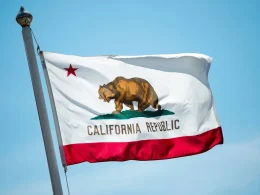A German court has ruled against Elon Musk’s social media platform, X, ordering it to provide researchers with immediate access to data on political content ahead of Germany’s federal election on 23 February.
The ruling, issued by the Berlin Regional Court on Thursday marks a significant legal test of the European Union’s Digital Services Act (DSA), raising fresh concerns over X’s compliance with European regulations.
The lawsuit was filed earlier this week by Democracy Reporting International (DRI) and the Society for Civil Rights (GFF), which accused X of obstructing efforts to monitor potential election interference. The plaintiffs argued that X had refused to grant access to key engagement data—such as likes, shares, and visibility metrics—that other platforms have made available to researchers.
Social media firms, including X, are already under scrutiny from the European Commission over their handling of election-related risks. Last year, Russia was accused of interfering in Romania’s annulled presidential election through a TikTok campaign promoting a pro-Kremlin candidate.
This case intensifies ongoing tensions between European regulators and X over the platform’s rollback of content moderation policies and reluctance to comply with transparency requirements.
The DSA, which came into force in 2022, mandates that large platforms provide researchers with access to data to assess systemic risks. The European Commission had previously accused X in July of breaching these requirements and also questioned Meta over its decision to discontinue research tool CrowdTangle.
The Berlin court sided with the plaintiffs, granting an urgent injunction compelling X to provide real-time access to the requested data via its online interface until 25 February. The ruling also orders X to cover legal costs and imposes a €6,000 procedural fine, setting a precedent for enforcing transparency obligations under the DSA.
“The digital space is not a lawless zone, and I trust that X will now quickly comply,” said Michael Meyer-Resende, executive director of DRI, adding that the platform’s refusal to cooperate had “forced” legal action.
The Berlin ruling represents a key test of Article 40 of the DSA, which aims to facilitate research on social media and support regulatory enforcement.
Both TikTok and Meta have already granted DRI access to data under similar applications, the organisation confirmed earlier this week.
“The decision is a huge success for research freedom and democracy,” said Simone Ruf, deputy director of GFF’s Centre for User Rights. “We have fought for access to vital research data and are now blocking attempts to manipulate elections.”
With just over two weeks until election day, it remains to be seen whether X will comply with the court order or attempt to delay through legal appeals.





















